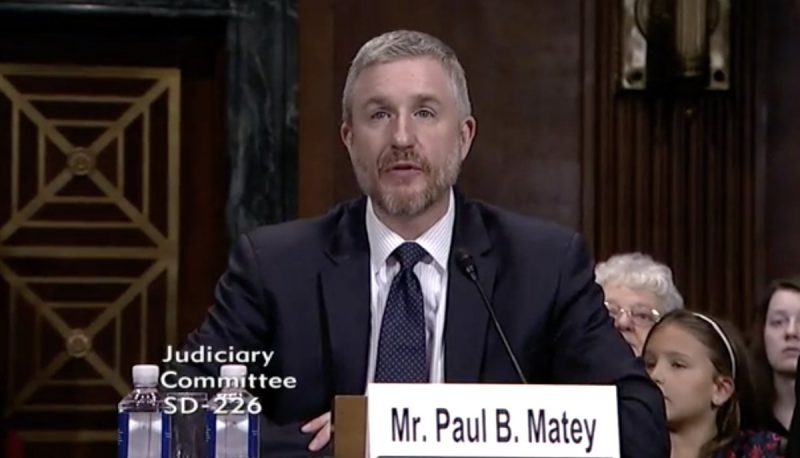“Confirmed Judges, Confirmed Fears” is a blog series documenting the harmful impact of President Trump’s judges on Americans’ rights and liberties. Cases in the series can be found by issue and by judge at this link.
Trump Third Circuit judge Paul Matey, joined by Trump judge David Porter, reversed a district court and ruled that the court must determine whether state law requires an Amazon driver to arbitrate his individual claim and thus could not pursue a class action contending that the corporation improperly treated drivers as independent contractors and failed to pay them minimum wages and overtime. The September 2021 decision was in Harper v Amazon.com Services, Inc.
Robert Harper is a New Jersey driver who delivers packages for Amazon. He filed a lawsuit against Amazon on behalf of himself and similar “Amazon Flex” drivers in New Jersey, contending that Amazon improperly treats them as independent contractors rather than employees and fails to pay them minimum wages and overtime that they should receive under New Jersey law. Amazon claimed that the case could not proceed, and that Harper had to arbitrate his individual claims against it pursuant to the standard agreement he executed, which stated that all disputes were to be resolved by arbitration pursuant to the Federal Arbitration Act (FAA). The district court rejected Amazon’s motion and ordered limited discovery to help determine whether the FAA did not apply to Harper and other New Jersey drivers because they make deliveries across state lines (principally to New York) so that the class action could proceed. Amazon appealed.
In a 2-1 decision, Trump judges Matey and Porter reversed and ruled for Amazon. They maintained that rather than ordering limited discovery to quickly resolve the issue of whether Hodges could be required to arbitrate under the FAA, the lower court should have first determined whether the agreement “requires arbitration under any applicable state law,” and only then return to the FAA issue. The result will clearly delay the resolution of whether the class action can proceed as the court considers a “possibly challenging set of legal questions,” but according to the majority, is more consistent with precedent and respect for the “balance of authority” between state and federal law.
Judge Patty Shwartz firmly dissented. She explained that, contrary to the majority’s view, the district court had “followed the plain language” of the agreement and “faithfully applied binding precedent,” rather than seeking now to resolve “tricky state law issues” concerning arbitration. Specifically, she went on, the agreement makes clear that the FAA and “federal law will govern” any dispute between the parties, so it made sense for the district court to follow precedent and determine first whether Hodges and other class members are subject to the FAA, and only then look at state law issues if necessary. Shwartz noted that in two other cases concerning “the very agreement” with Amazon “at issue” in this case, two other federal appellate courts had similarly examined the FAA issue first, and one concluded that state law did not apply so that the class action could proceed. The district court’s ruling, Shwartz concluded, should have been affirmed “in all respects.”
Instead, as a result of the decision by Trump judges Matey and Porter, there will be at minimum a substantial delay before it is determined whether Hodges’ class action against Amazon for violation of minimum wage and other laws can proceed, and a troubling precedent has been set for future cases involving large corporations that similarly insist on arbitration clauses in their agreements with workers. The case is yet another example of the importance, as part of our fight for our courts, of the Senate continuing to promptly confirm Biden nominees to the Third Circuit and elsewhere who will not seek to bend the law to favor corporations over workers.

